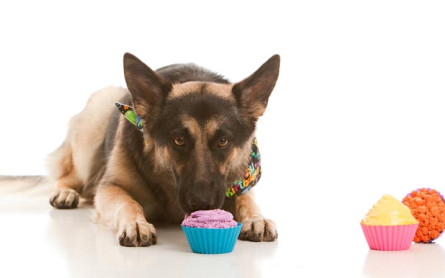
Planning & budgeting
Saving & investing
KiwiSaver
Tackling debt
Protecting wealth
Retirement
Home buying
Life events
Setting goals
Money tracking
Plan your spending with a budget
Getting advice
Studying
Get better with money
What pūtea beliefs do you have?
How to build up your emergency savings to cover unexpected costs
How to save your money
How to start investing
Find a financial adviser to help you invest
Your investment profile
Compound interest
Net worth
Types of investments
Term deposits
Bonds
Investment funds
Shares
Property investment
How KiwiSaver works and why it's worth joining
How to pick the right KiwiSaver fund
Make the most of KiwiSaver and grow your balance
How KiwiSaver can help you get into your first home
Applying for a KiwiSaver hardship withdrawal
How to use buy now pay later
What you really need to know before you use credit
How to get out of debt quickly
Credit reports
Know your rights
Pros and cons of debt consolidation
Credit cards
Car loans
Personal loans
Hire purchase
Student loans
Getting a fine
What happens if I start to struggle with moni?
How to protect yourself from fraud and being scammed
About insurance
Insurance types
Insuring ourselves
Wills
Enduring powers of attorney
Family trusts
Insuring our homes
Losing a partner
Redundancy
Serious diagnosis
How to cope with the aftermath of fraud
Separation
About NZ Super – how much is it?
When you’re thinking of living in a retirement village
How to plan, save and invest for retirement
Manage your money in retirement
Find housing options in retirement
Four approaches to spending in retirement
Planning & budgeting
Saving & investing
How to build up your emergency savings to cover unexpected costs
How to save your money
How to start investing
Find a financial adviser to help you invest
Your investment profile
Compound interest
Net worth
Types of investments
Term deposits
Bonds
Investment funds
Shares
Property investment
View all
KiwiSaver
Tackling debt
How to use buy now pay later
What you really need to know before you use credit
How to get out of debt quickly
Credit reports
Know your rights
Pros and cons of debt consolidation
Credit cards
Car loans
Personal loans
Hire purchase
Student loans
Getting a fine
What happens if I start to struggle with moni?
View all
Protecting wealth
Retirement
Home buying
9 February 2016
Reading time: 3 minutes
Posted by Tom Hartmann,
0 comments

“Daisy, stay!” yells my daughter. As anyone who has ever told or trained a dog to stay knows, it takes a lot of mental work on the dog’s part not to move. Particularly while in training, you can really see them struggle to stay put. Especially if it’s for 10 whole minutes.
That’s exactly what one study did with pairs of similar dogs. (They also gave them a dose of glucose, but more on that later.)
For each pair, one dog was left to rest on its own, while the other was given the command to stay for 10 minutes. Then each was given a follow-up task and timed to see how long they would to stick to it.
The results have a lot to say about human willpower.
The dogs that were left to rest and not ordered to stay spent on average almost three times longer on the next activity. Their mental energy had not been worn down – they hadn’t had to obey the command beforehand.
The short of it is: we can’t keep expecting to make good choices and exert self-control without running out of energy. This is what experts call “decision fatigue”, which can hit whenever we have a string of choices to make. Unlike being physically tired, we may not notice as it sneaks up on us.
Picture yourself doing the weekly shop. You cruise the aisles, making choice after choice along the way. Many are habitual and some are mental shortcuts, like reaching for familiar brands or sticking to a list. But because prices change and we typically want variety in what we eat, there are always active decisions being made.
And then we get to the check-out, and wouldn’t you know it, there are all those snacks on display! Another choice to make – to buy or not to buy? We’re more likely to act impulsively when mentally tired. All those decisions sap our willpower – much like the dog who was ordered to stay those 10 long minutes. Shop owners figured out long ago that we’ll buy at that point, and now research explains why.
Speaking of sugary snacks, the dog study went much further to show something remarkable. Repeating the same experiment with more pairs of dogs, they found that the obeying dogs’ willpower was restored when they gave them a boost of glucose. A sugar hit was all it took to erase the differences previously noted in the dogs.
It turns out that glucose – and this has been proven in people as well – is the fuel for willpower and self-control. And particularly when our brains get motoring with challenging choices to make, we need to keep filling the tank.
Perhaps we should leave all our most important money decisions until right after breakfast. After all, we make better, more informed choices when we’re not tired. Or set goals with our partner over dessert! (But perhaps not over a drink, since alcohol reduces the glucose in our system.)
Think back to the grocery checkout, after all those choices in the aisles. As dieters will experience as well, we ironically find ourselves between a rock – needing the willpower to avoid the sugar – and a hard place – needing the sugar to have the willpower!
Meanwhile the dog rests outside.
Use verification code from your authenticator app. How to use authenticator apps.
Code is invalid. Please try again
Don't have an account? Sign up
Or log in with our social media platforms


A free account gives you your very own space where you can save your tools and track your progress as you get ahead.
Or sign up using Google:



Comments (0)
Comments
No one has commented on this page yet.
RSS feed for comments on this page | RSS feed for all comments